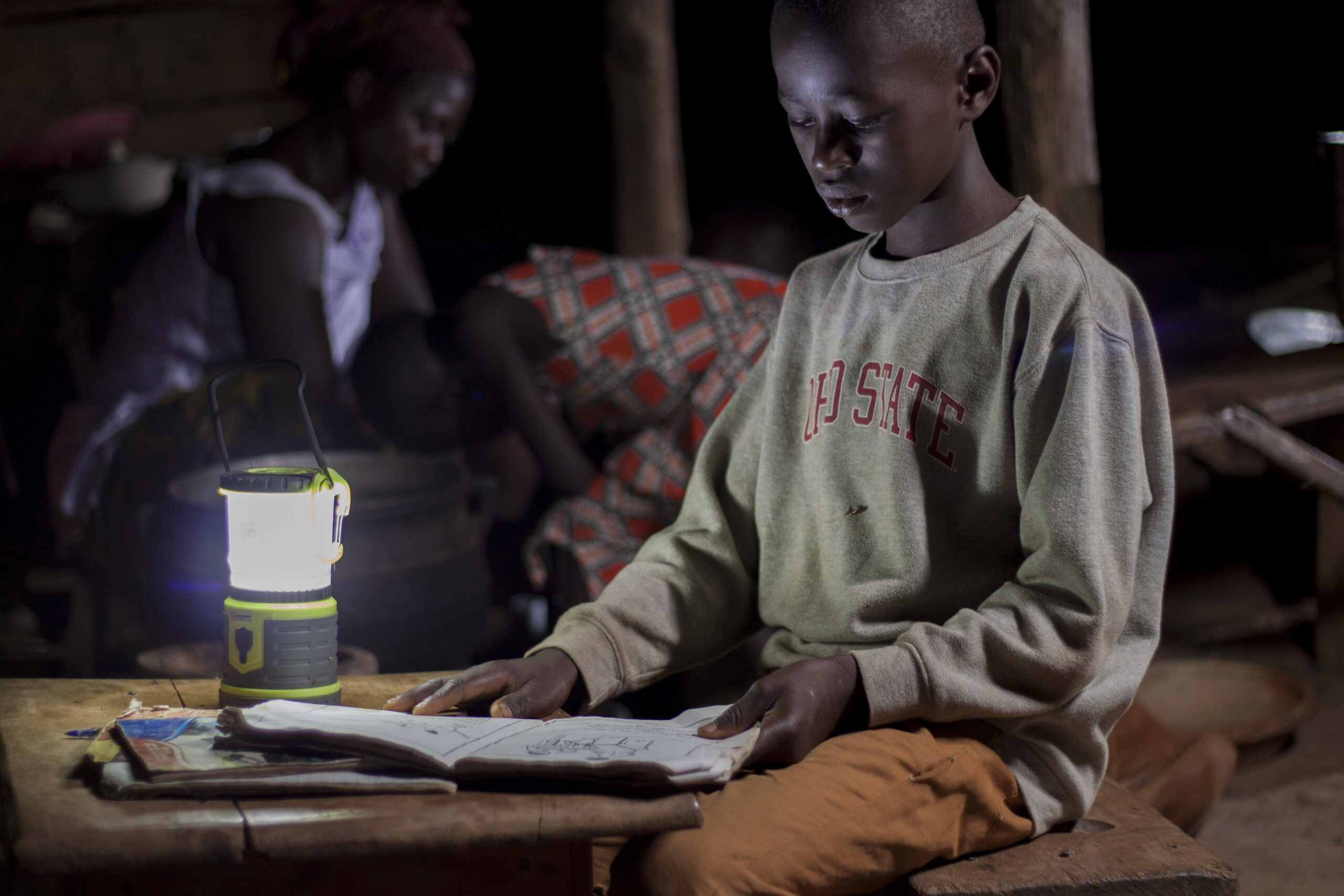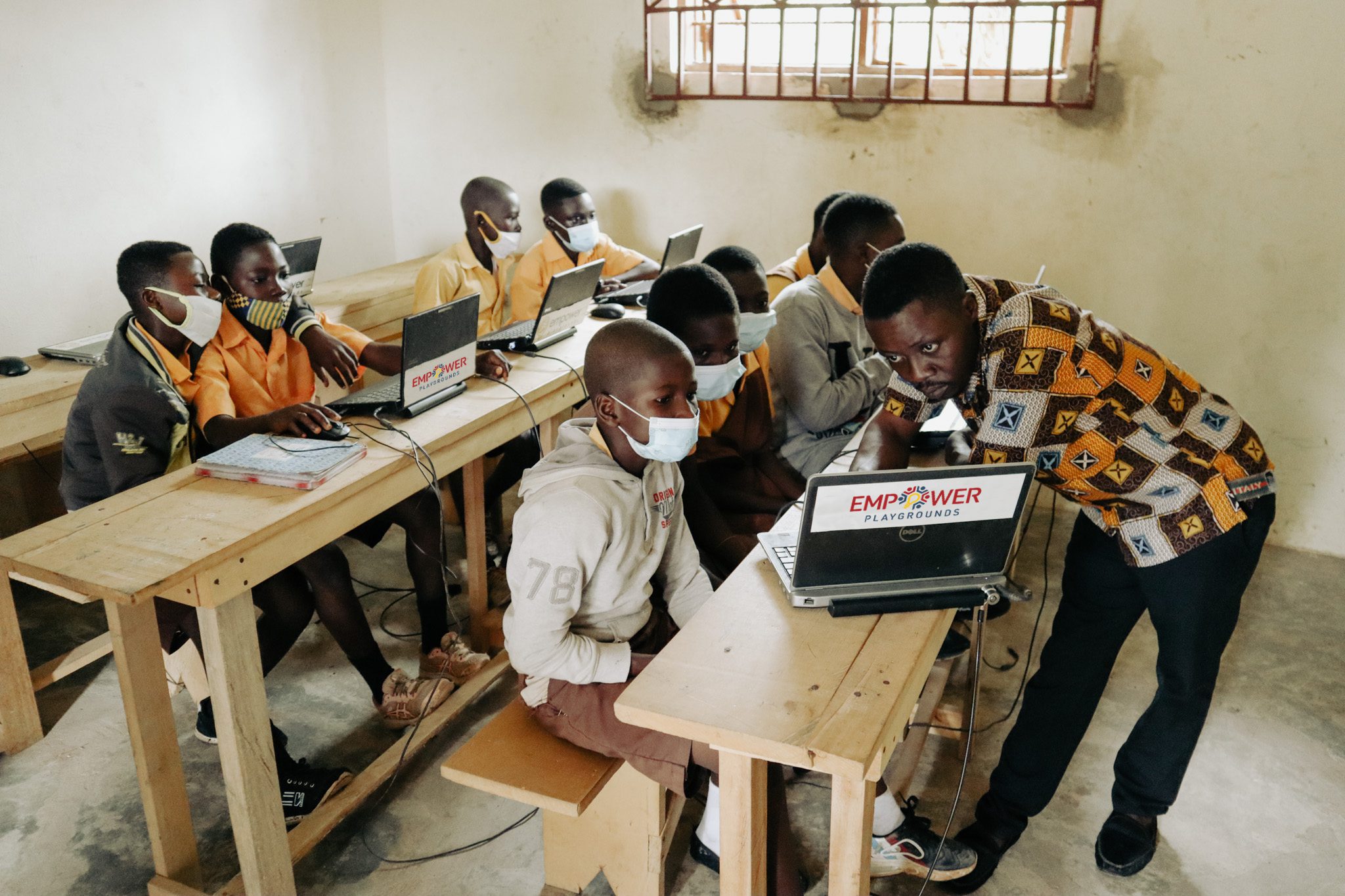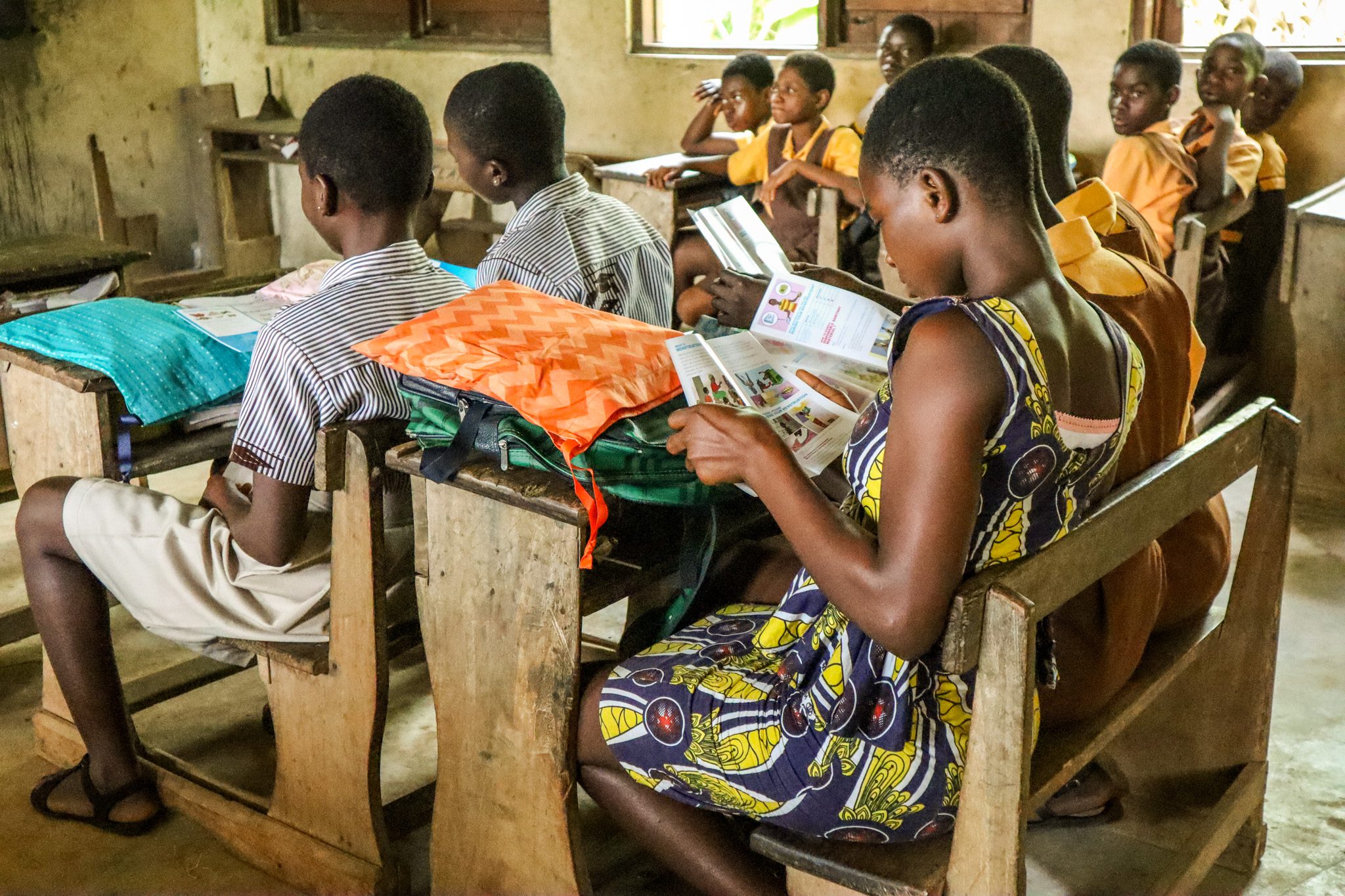Our Projects
All of our projects center around educational improvement and opportunity.
Providing Light
The majority of Ghanaians living in rural areas don’t have access to electricity in their homes or schools. Children in these communities find it almost impossible to study, read, and do their homework at night. Most children assist on farms, or other chores until past sundown, leaving no natural light left to study. Our merry-go-rounds and lanterns aim to aid this problem.
Merry-Go-Rounds
Merry-go-rounds generate electricity that then charge lanterns, so students can study at home. As children play and spin it, electricity is generated that charges a battery. Solar panels are also attached to the battery, which prevent battery discharge during school breaks. Rechargeable lanterns are brought back every two to three days to be charged.
The merry-go-round also serves as an educational, hands-on learning experience for the children to learn more about engineering and technology. Students learn about electricity generation, and participate in it themselves.
How This Helps
Empower Playgrounds uses the renewable source of children’s play at school to generate safe, transportable electricity that empowers children with more opportunity to study and enhance their education.
Lantern Groups
Lanterns are brought home by the students to help them study in the evenings, after spending the day and school and afternoon doing chores. Students are split into lantern groups, led by one student assigned as the lantern leader. This leader is responsible for bringing the lantern back to school to be recharged after it has been used.
Without our lantern program, teachers often don’t assign homework because they know their students will not have the time or means to complete it before the next day. With our lanterns in place, students have the means to study, allowing teachers to assign homework, giving students the chance to gain more education and advance to high school.
How This Helps
Ghana has more than 12,000 primary schools (elementary/middle school), but less than 500 secondary schools (high school). In order to be admitted to a high school and further their education, students must take a competitive entrance exam. Rural students are extremely disadvantaged in preparing for the exam. Lantern groups allow students to study and prepare to pass the exam and change their lives.
Village Solar Project
The Village Solar Project (VPS) uses solar power to provide opportunities for families living on remote islands to have electricity in their homes.
How It Works
Empower Playgrounds donates 1 solar panel, 20 amp charge controllers, led light bulbs, and installation to each participant’s home.
The battery is given to the families as a loan that they will pay back over 2 years. They also have the option to add more lights, radios, ceiling fans, and TV’s to their loan.
Villagers pay 25 Ghanaian Cedis per month to repay the loan from their battery. They can withdraw from the program and receive a full refund up to 1 year after the installation.
Any money recouped from the 2 year loan will be re-invested into another Village Solar Project home or used to maintain current homes.
How This Helps
Many islander families use kerosene and other fuels to light their homes, which are dangerous and expensive. VPS allows families to invest in a safe alternative, enabling them to complete unfinished work/chores, charge cell phones, and stay connected to their country’s news via radio/TV.
This also helps with teacher retention in schools, as many are reluctant to stay in these off-the-grid villages without electricity.
Augmenting Education
To continue to high school, Ghanaian students must pass an exam called the BECE. Many of the concepts tested on this exam are hard to understand with no concrete examples. Through our installation of computer labs, libraries, and science kits help students to learn and understand these concepts to be able to further and have a fair chance at passing the BECE exam.
Libraries
Libraries give children access to reading materials to help them learn new words, expand their minds, and enrich their education. Educational resources in Ghana are scarce, and the government rarely has the funds to provide books for classrooms. Rural families are also often unable to afford the purchase of additional materials. This lack of reading material contributes to the existing literacy discrepancy in Ghana. Libraries in schools help combat these problems
How This Helps
Our installation of libraries helps give students needed resources and learn in ways that only reading can bring. Expanding knowledge through literature exposure increases reading comprehension and will ensure greater success in all future academic endeavors.
Computers
Many students in rural schools have never seen a computer in person, yet they are required to know how one works, and even be able to use Microsoft Word, in order to pass the BECE exam and enter high school. While teachers explain to the best of their abilities how to work a computer by drawing it out of the chalkboard, it simply isn’t enough.
Once a school has a reliable source of power, we are able to install a computer lab with a device called a RACHEL (Remote Area Community Hotspot for Education and Learning) that gives rural schools access to an outstanding number of resources, and programs like Word and Excel. Students are able to learn and expand their knowledge like never before.
How This Helps
Giving students the opportunity to learn how to operate and efficiently use a computer is an amazing opportunity, and essential so students can attend high school. The RACHEL device also gives schools access to countless resources to not only help in computer literacy, but all other subjects such as math, science, and reading.
Scholarships
Scholarships help girls to attend high school and help fulfill their educational and professional dreams. Many rural families in Ghana cannot afford the cost of high school and they will rarely put a preference on sending their girl children.
Our scholarships help cover tuition, fees, uniform, room & board, books, and travel to and from their home for vacation days. It also includes a mentorship program from a local female university student who oversees their progress and encourages them in their academic endeavors.
How This Helps
Only 9.7% of female girls aged 15 and older have completed junior high school. Many girls have zero hope of attending high school and don’t take the entrance exam (the BECE) to even have the opportunity. Providing these scholarships gives girls opportunity and hope to extend their education.
Science Kits
Our science kits give students hands-on learning experiences, which is something the Ghanaian education system typically lacks. The kits show the flow of electricity and energy. In order for Ghana to continue progressing in the technology and engineering sectors, students need to experience and develop a passion for science.
We train teachers on how to use the kits, and help them understand the importance of giving their students opportunities to learn and experiment with them.
How This Helps
School children are Ghana’s future. These science kits help enhance their education and passion for science/engineering– passions that are necessary to help advance Ghana in these sectors.
Classroom Blocks
Many rural schools have limited enough resources that they either don’t have a building to meet in, or there isn’t enough room for all the classes. Teachers end up teaching underneath the shade of a tree, with students sitting on the ground around them. Empower Playgrounds helps build new classroom blocks (school buildings) for the students to study and learn in.
How This Helps
Having a classroom to sit and learn can make all the difference. Students pay more attention, teachers can use a chalk board to explain things, and children have their own desk to sit and work at. Quality of education improves when resources are available.
Promoting Wellness
Many people living in rural Ghana don’t have access to clean water sources, relying on unsafe, often contaminated, water sources for drinking, bathing, and washing dishes. Contaminated sources cause illness, and sick children can’t go to school. Along with this, girls’ education is particularly impacted by lack of menstrual hygiene resources, causing many girls to have to drop out of school once they start their periods. Our programs help kids stay in school by aiding these problems.
Menstrual Hygiene kits
Reusable menstruation kits keep girls healthy and in school. In 2014, NGO Sustainable Development Focus found that 95% of rural Ghanaian school girls miss school for an entire week each month because they have no resources or money to manage their menstruation.
Each kit contains reusable pads, soap, wash cloths, panties, absorbent liners, a drawstring/zipper pouch, and plastic zip bags for washing used pads.
The kits are delivered with a Unicef pamphlet, made specifically for girls in Ghana. We provide training to both the girls and their parents (as well as the teachers), going into detail about menstruation, health, and hygiene, as many girls are unaware.
How This Helps
Missing one week of school each month doesn’t just mean that a girl is learning 25% less than her peers, it also means that when she returns she must teach herself both the missed material as well as the current week’s material. The menstruation kits provide girls with the resources they need to stay in school so they can graduate in a timely manner.
Poor menstrual hygiene also increases risk for reproductive tract infections. Training and kits help girls to avoid this. The culture in rural Ghana has many myths surrounding menstruation that stigmatizes girls on their periods. Empower Playgrounds requests that parents and teachers are present in trainings to help end these stigmas and help girls overcome barriers and gain the education they deserve.
Boreholes
A borehole is a well drilled deep into the ground that pumps up clean water. This water is clean, safe to drink, and easy to access for community members. Access to clean water is often difficult to find in rural villages, and some children may have to walk up to 3 miles each way to fetch water for their families, and this water is often still unclean. Empower Playgrounds drills boreholes near schools so that kids have clean drinking water throughout the day and easy access.
How This Helps
Not only does access to clean water help children stay healthy and in school, it can also increase a child’s cognitive ability, leading to higher test scores. Also, many children, especially girls, are forced to drop out of school or leave early in order to walk to get water for their families. Boreholes help kids stay in school and gain a rounded education.
BioFil Toilets
BioFil Washrooms are an innovative way to get rid of waste in a sanitary and odor-free manner. Students and community members are able to use their washrooms to improve cleanliness and sanitation in their communities and schools.
How This Helps
Students are able to stay healthy through the use of BioFil toilets and stay in school to learn and improve their education.



